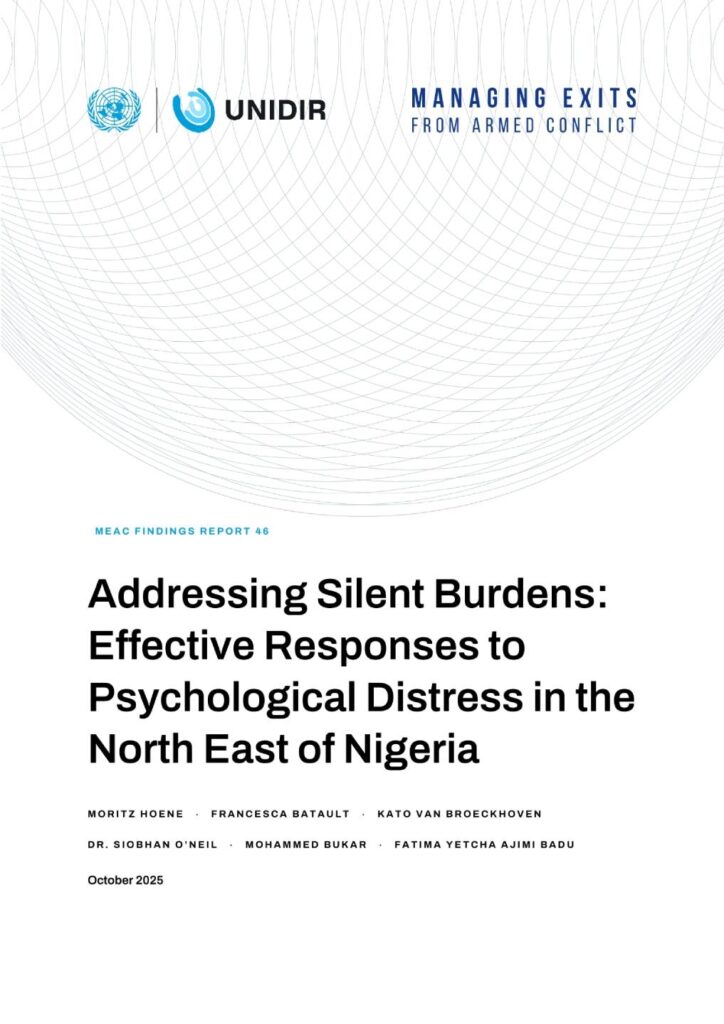This report sheds light on the topic of mental health and psychosocial well-being of conflict-affected populations in the North East of Nigeria. Analysing data collected by UNIDIR’s Managing Exits from Armed Conflict Project in the Borno, Adamawa and Yobe States, it highlights several risk factors contributing to heightened levels of psychological distress experienced by community members and former associates of armed groups. Overall, both experiences of conflict violence as well as daily stressors are identified as drivers of psychological distress. Based on these findings, the report suggests possible pathways for designing effective mental health and psychosocial support programming with people affected by the Boko Haram conflict. Considering the lack of clinical resources, as is often the case in conflict contexts, low-cost and scalable activities should be prioritized.
Citation: Moritz Hoene, Francesca Batault, Kato van Broeckhoven, Siobhan O’Neil, Mohammed Bukar, and Fatima Yetcha Ajimi Badu, "Addressing Silent Burdens: Effective Responses to Psychological Distress in the North East of Nigeria”, Findings Report 46, UNIDIR, Geneva, 2025. https://doi.org/10.37559/MEAC/25/09.
